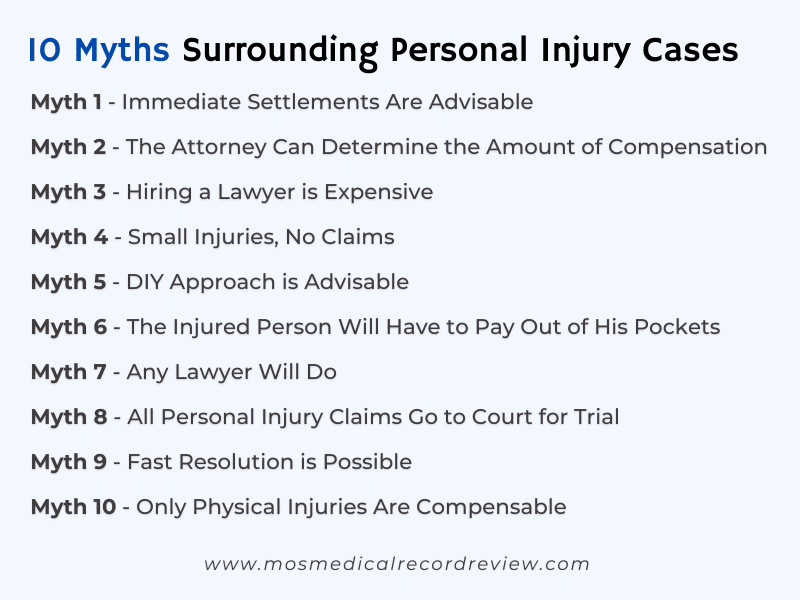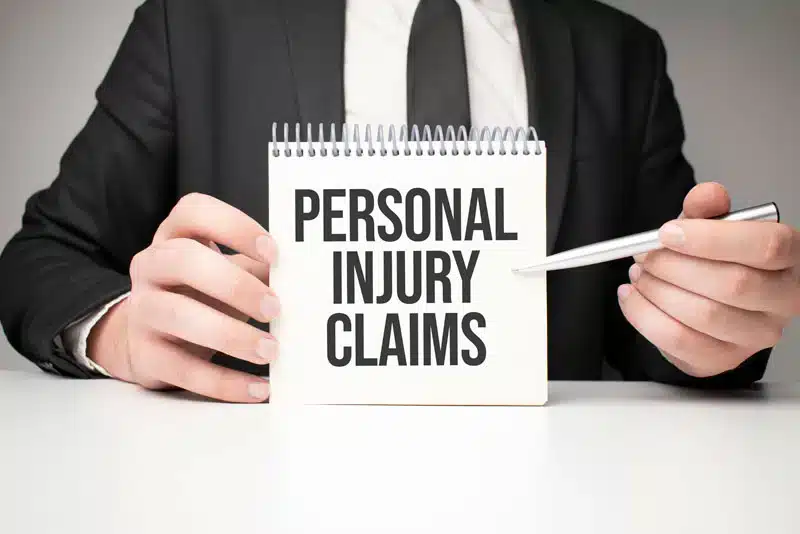Typically, personal injury claims occur when you get injured by the negligent or irresponsible behavior of another person. Ultimately, the injured person gets compensated for incurred costs such as medical bills and other injury-related expenses. As every personal injury case is different, different legal terminologies will be involved. Each personal injury case relies significantly on medical records review, which helps the attorney to understand the medical facts involved and prepare the case accordingly. It is important for attorneys, medical review companies, plaintiffs and defendants to be familiar with the terms associated with the litigation process.
Rely on our expert medical review services!
Get started! Call (800)-670-2809!
10 Myths Surrounding Personal Injury Cases

Myth 1 – Immediate Settlements Are Advisable – It is not necessary to immediately rush into a settlement right after the accident. Taking adequate time to assess the extent of injuries and damages is crucial.
Myth 2 – The Attorney Can Determine the Amount of Compensation – Even though a lawyer can give an overall estimate of the compensation amount, it would be practically impossible to quote an exact figure. The compensation amount may be different for each case and its circumstances.
Myth 3 – Hiring a Lawyer Is Expensive – Legal fees are often misunderstood. Most personal injury attorneys work on a contingency basis, meaning you pay only if you win.
Myth 4 – Small Injuries, No Claims – Even if the injuries are minor, plaintiffs may receive coverage for their medical expenses.
Myth 5 – DIY Approach is Advisable – Handling claims on your own is risky. Experienced attorneys understand the various legal intricacies and implement the right negotiation tactics.
Myth 6 – The Injured Person Will Have to Pay Out of His Pockets – In almost all personal injury cases, the concerned insurance companies pay for the claim, not the injured person.
Myth 7 – Any Lawyer Will Do – An experienced, specialized personal injury attorney is essential. Their expertise ensures proper handling of intricate legal matters. Plaintiffs need not take on the additional stress of preparing and arguing the case.
Myth 8 – All Personal Injury Claims Go to Court for Trial – Most personal injury cases don’t go to trial as it can be expensive and risky. Both parties concerned typically prefer to negotiate, or hire a mediator outside the court to settle the case. Skilled negotiation can often lead to satisfactory settlements.
Myth 9 – Fast Resolution Is Possible – Quick resolutions are unlikely. Legal proceedings involve steps that require time for due diligence.
Myth 10 – Only Physical Injuries Are Compensable – Physical as well as mental injuries are compensable. Plaintiffs can also receive compensation for the emotional and psychological pain and suffering caused by the incident.
Personal injury law firms rely on professional medical review services to save valuable time and costs. Reviewers at such companies are well-trained in analyzing the medical records and familiar with terminology related to personal injury lawsuits and court proceedings.
Utilize accurate and reliable medical review solutions!
Contact us at (800)-670-2809! today.




